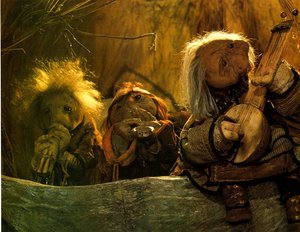


"A lawyer on the brink of ruin, a paranoid director, a dead movie star, and a picture no one will ever see… It is 1952 and show business lawyer Robert L Harvey is on the brink of financial ruin. TheHollywood witch-hunt is putting him out of business. That is, until, he receives a call from movie director, and constant paranoid, Michael Bloom. The big shot has misplaced the film reels of his latest project, the star of which has recently died. Harvey thinks it's a job for the police but the director is adamant he doesn't want his employer, Mayor Studios, to know their investment is lost. Desperate for the money Harvey agrees, but when he delves into a side of the movie industry he's never seen before his priorities have to change…"
Let's just say, "I have issues with the way this book has been written..." The Truth, It Lies has an interesting enough premise, but it has many functional problems on delivery. To begin with, the book is plagued by missing words and other grammatical errors. I could not overlook it, but I'm definitely willing to cut an author some slack when the story and delivery are top notch. The story is decent, but didn't keep me wondering when I was going to get back to reading it. The delivery is the real problem with this book for me and the numerous problems ultimately killed it. FOR EXAMPLE:
- There is a continuity problem at the outset: Chapter One begins with the investigation into this movie star's death by police (in the present). Chapter two zooms back in time several weeks and not by way of a character's memory or a flashback or any other anchor point--It simply starts us over again "several weeks ago?" When we hit Chapter 3, we are again in present time with the main character, Robert Harvey, who is a down and out lawyer to the stars...this carries me to two more big problems.
- The Narration of this story begins in omnicient narrator point-of-view, Chapter two, despite the "Back to the Future" timeshift, is also given in this same point-of-view. When we come to Chapter 3 and take up with the lawyer, Robert Harvey, everything changes to first person point-of-view?? huh? Which brings me to another problem...
- When we get to this first person point-of-view switch in the 3rd chapter, the majority of prose is all inside this character's head...no, I mean conversations with everyone around him are all given to us second hand through this character's thoughts rather than delivered as dialogue! The character gives us information from the conversation he is presently having (without any dialogue) and then that's it?! It would be much easier and more interesting to just give us the dialogue even in first person. Delon City, which I recently reviewed, is all first person, but we have all of the dialogue...so, what's the problem? An entire plot hinging phone conversation is bypassed this way, along with conversations with the police and so forth...which brings me to another big problem I have with this story.
- The book is delivered in the style of a 50's private detective story like Mike Hammer or better yet, "Dead Men Don't Wear Plaid." However, instead of a Private Dick doing the investigation, we have a hollywood lawyer. Why? Well, the lawyer actually asks that question of his nervous client to this response: "Private detectives are not discreet enough," to which the lawyer character agrees. The only thing is, that is exactly the nature of a private detective; to be discreet in their investigation. The first time out to investigate, he is caught by security--very discreet, huh?
All these problems make for a very difficult read. I give him kudos on a nice cover, but that's about all the good I could come up with. There is a story here, but it has not been delivered in a cohesive way and ultimately left me unsatisfied.





No comments:
Post a Comment